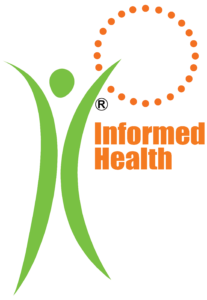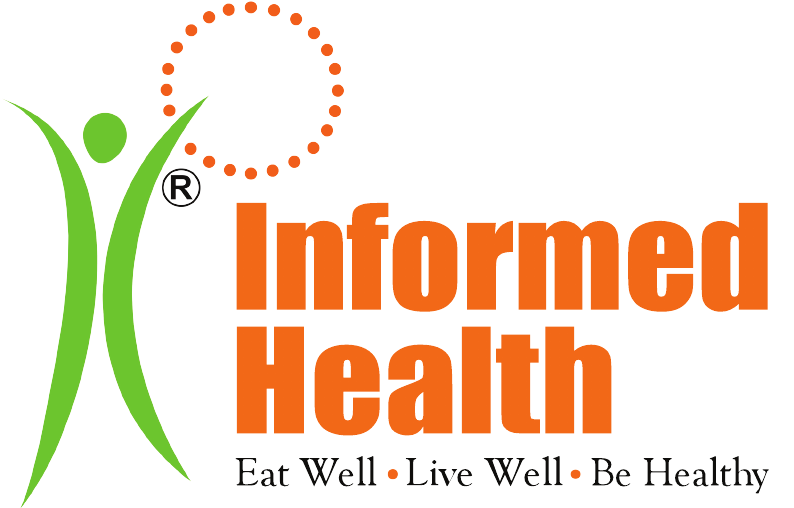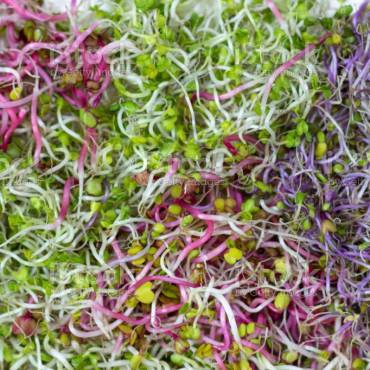Heart Health Matters
Love is in the air and romance is alive, well just a day before, we were witness to the global phenomenon of display of love. Shops were flooded with flowers, chocolates, cute teddy bears and the restaurants had been busy creating the perfect romantic settings for dinners.
Just as January each year reminds us of new beginnings, goal setting, learning from the past and moving forward with zest, February, the month right after that is all about love and care of loved ones. While February is associated with Valentine’s day, and the color red, the journey of the matters of the heart does not stop there. American Heart Association celebrates February as American Heart Month and uses this time to generate awareness on heart health.
Cardiovascular diseases (CVDs) have now become the leading cause of mortality in India. A quarter of all mortality is attributable to CVD. The Global Burden of Disease study estimate of age-standardized CVD death rate of 272 per 100 000 population in India is higher than the global average of 235 per 100 000 population. (Dorairaj Prabhakaran, AHA Journal)
In matters of the heart, small steps go a long way towards prevention and therapeutically healing the condition. In my view the first step is to debunk myths long associated with heart health and to embrace facts.

Cholesterol could easily be described as the smoking gun of the last two decades. High cholesterol has become synonymous with heart disease. It’s been responsible for demonizing entire categories of foods and blamed for just about every case of heart disease.
Only in 2015, DGAC (Dietary Guideline Advisory Committee, USDA) put a halt on the assault on cholesterol. Their issued statement – ‘Cholesterol is not considered a nutrient of concern for over consumption’ made to the headlines of all most all newspapers and magazines in the US.
But in India, even now a routine blood test report can set the anxiety levels soaring if it shows a ‘cholesterol problem’. I am nowhere hinting that deranged lipids are not a matter of concern. What I am against is the generic course of advice that follows on cutting down all fat in your diet. Any best dietitian would not suggest you to put a blanket ban on fats, doing this is counterproductive to high cholesterol and in turn heart health. Infact I had spoken at length abut this in my article published in Millennium Post, titled Good Fat, Bad Fat. If this surprises you, its important to understand what is cholesterol, its role in our body before we even discuss dietary modifications.
Our body needs cholesterol.
This soft, waxy substance that’s found not just in the blood stream but also in every cell of our body serves many essential functions in the maintenance and optimum functioning of our body. Contrary to common belief, cholesterol plays an important ‘protective’ role in our body.
• Cholesterol is found in cells where it helps to produce cell membrane. These membranes serve as the means for all inter cellular communication.
• At cellular level, cholesterol also aids in repair of blood vessels and membranes. It protects the cells and tissues from free radical damage, demonstrating anti- oxidant properties.
• Several important hormones, including Vitamin D, Estrogen, Testosterone are produced from cholesterol.
• Cholesterol is vital for neurological function. Today, there is growing evidence between low cholesterol levels and Alzheimer’s, Parkinson, neuro muscular pains and joint aches.
• Cholesterol is required for a good memory.
• Good digestive system and maintenance of intestinal wall is dependent on cholesterol. This is because its an essential component of bile which is required for breakdown of nutrients.
Enough is spoken about HDL being the good cholesterol and LDL being the bad one. But there is more than just meets the eye. While the former plays a role in cholesterol recycling system, the latter is involved in repair and protective functions; both have a positive role to play in the body. The large LDL particles do not cause a problem to the heart, but it’s the small particles of LDL that are detrimental to the heart.
Also, it’s the lesser talked about ‘oxidized cholesterol’ that truly is the culprit. It’s this category of cholesterol that leads to creation of plaque causing blockages in the arteries.

High blood pressure is another factor that increases the risk of heart disease. Research studying the role of inflammation in hypertension and cardiovascular disease has flourished in recent years. Inflammation is a condition that is seen to be present in all patients of cardio vascular diseases.
Lifestyle: The Magic Pill
Healthy lifestyle modification holds the power and promise of attending to not just individual but the cumulative effects of bad Cholesterol, Inflammation and High Blood pressure. Lifestyle is the only drug that that can prevent and heal the heart disease without any negative side effects, thereby improving your quality of life.
Simple lifestyle strategies to improve heart health:
1 Cut down on processed and packaged food: Foods like chips, cookies, biscuits, cakes, namkeens contain low grade refined oils. These oils are inflammatory in nature and cause oxidative damage in the body. In addition to bad quality fat, the sodium content of these products is high, leading to high blood pressure. Outsourced meals are often made in oil that’s used and reused time and again. This changes the chemical composition of the oils turning them into hydrogenated fats, which are harmful for your heart.
2 Switch to native oils. India is a vast country and each geographical region has a staple choice of cooking oil. So, while cold pressed mustard oil is popular in North India, West and Eastern India uses sesame oil; groundnut oil is used along the coasts, coconut oil, down South. Today the markets are flooded with refined oils. These are high in Omega 6 fatty acids. Our body requires a delicate balance of omega 3: omega 6. But with industrialization of food and increasing usage of vegetable oils in margarines, salad dressing, bakery and confectionary, this ratio has gone all wrong. In order to realign this ratio, we should shift to traditional cold pressed oils in our meals.
3 Consume whole grains and food closer to their natural state: Fiber from natural sources is beneficial for heart health. Today a lot of snacks get sold in the name of ‘high fiber’ or ‘digestive’. Though fiber is of extreme importance for heart health as it not only lowers blood pressure and cholesterol but also assists in keeping weight in check, fiber in unnatural forms is not the solution to this concern. Too much fiber comes in the way of absorption of key micro nutrients like zinc, iron, magnesium, calcium. Also, those who give up complex carbohydrates to go low or carb free, end up with low Vitamin K 2 which causes calcification of arteries.
4 Consume good quality fats: Inclusion of good quality fats like nuts-walnuts, almonds, cashews; seeds like flax seeds sunflower, pumpkin, sabja seeds, ghee, coconut helps the liver in regulating production of cholesterol. Your liver makes about 75 percent of your body’s cholesterol. In presence of good fats, the liver auto regulates its production.
5 Watch out for sugar in all forms: Sugar finds its way on the food labels under many different names- Dextrin, SCF, Maltodextrin, Xylitol, Sucanat, HFCS, maltose, fructo-oligosaccharide to name a few. In the name of convenience, when we opt for breakfast cereals, breads, ready to eat commercial bars, we end up ingesting this sugar into our system. Too much sugar and refined carbohydrates contribute to inflammation. Inflammation is the precursor to many diseases like Diabetes, Cancer and Heart Disease.
6 Exercise: Aim to engage in 150 mins of structured workout in a week. In addition to this stay active. Working out for 1 hour in the gym and sitting through out is called sedentary active. This is just as harmful to health as being sedentary. Enroll in any kind of activity you enjoy and then stay consistent. Consistency is the key to good health.
7 Stay active: Sitting is the new smoking. Human body is designed for activity. Adequate movement ensures proper circulation, removal of toxins, proper digestion and absorption of nutrients. Risk of heart attack is more in people who live a sedentary lifestyle.
8 Quit smoking: Smoking remains one of the most preventable causes of heart disease. It causes oxidative damage in the body, hardens the arteries, increases blood pressure and increases risk of both heart attack and stroke. The same hold true for passive smokers too.
9 Lack of sleep: There is compelling research to believe that duration of sleep is an independent contributory factor to heart disease. 8 hours of sleep is cardio protective. It allows for recovery and healing of the body, detoxification, balancing of hormones, all of which help to regulate optimum health. Lack of sleep plays havoc on hormones the following day making you feel irritable, tired, dizzy and uncontrollably hungry.
10 Stress: Stress is an inevitable part of today’s life. However, how we manage it decides to what degree it affects our health. Adopt a regular practice of pranayama, meditation and have people around you to support and maintain positivity in your life. Managing stress can keep your heart strong.
Like I always say, love has the power to heal. Show love towards yourself. Have faith in the immense healing power that your body holds, support it with a healthy and disciplined lifestyle. In no time you will begin to reap benefits of small changes that you introduce in your life. These subtle changes will allow the process of vibrance and vitality to create the youth, vigor and energy that you really want.
REFERENCES
1 Cholesterol is not a Nutrient of Concern, Time Magazine
2 Cholesterol- Good and Bad, Dr. Axe
3.Good Fat, Bad Fat. Madhavi K Sharma
This article by Dietitian Madhavi has also featured in Millennium Post. Click here to read.
Confused by the misinformation about potential health problems with traditional Indian foods? Get in touch with the Best Dietitian in Delhi Madhavi K Sharma a strong advocate of the holistic, wellness benefits of fresh, local, and traditional Indian foods.
 If you wish to get notified about our new posts on Diet, Healthy Food, Lifestyle, Stress Management, Therapeutic Diets for clinical Conditions, like and follow us at Informed Health on Facebook and Bhealthinformed on Instagram.
If you wish to get notified about our new posts on Diet, Healthy Food, Lifestyle, Stress Management, Therapeutic Diets for clinical Conditions, like and follow us at Informed Health on Facebook and Bhealthinformed on Instagram.
Keep yourself happy by keeping yourself healthy. Let us design a nutrition, exercise and lifestyle transformation program that elevates your overall sense of well-being. Contact us now for an in-depth consultation.








